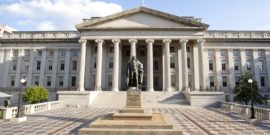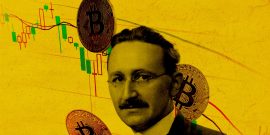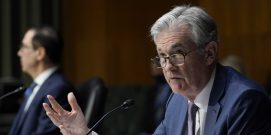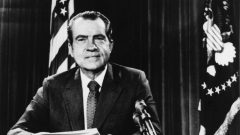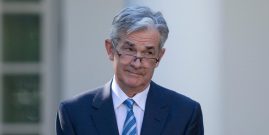The Fed has accumulated operating losses in the billions. It needs to be recapitalized.
Alex J. Pollock
With targeted reforms, the Fed could be made more efficient and more democratically accountable.
The Federal Housing Finance Agency's proposal effectively taxes mortgage borrowers with good credit in order to provide subsidies to riskier borrowers.
Could the debt ceiling crunch be avoided by the Federal Reserve forgiving treasury debt? Let's hope not.
The venture capitalists, crypto promoters, and billionaires who funded Silicon Valley Bank clearly knew the risks.
Edward Chancellor has given us a colorful and provocative review of the history, theory, and the profound effects of interest rates.
The world's central banks are possibly facing an insolvency of their own making.
Statist academics will always love the political possibilities of government's monetary control.
Inside most central bankers, there is a philosopher-king trying to get out.
A look at Paul Volcker's time as Federal Reserve Chair shows how painful it can be to beat inflation.
The more blunders the Fed makes, the more power and prestige it seems to get.
Cryptocurrencies have a glittering appeal for anyone looking to escape the control of central banks. Are they fool's gold?
By pushing more government-sponsored loans, Fannie and Freddie are feeding the already runaway house price inflation.
Uncertainty remains a key idea to understanding enterprise, entrepreneurship, and economic growth.
There is plenty of risk and uncertainty that might give rise to our next financial crisis.
We do not have to follow the fatally flawed housing policies of the Johnson, Clinton and Bush administrations.
Making a Modern Central Bank recounts the different—and sometimes contradictory—roles that the Bank of England has played.
On August 15, 1971, President Nixon put the economic and financial world into a new era.
If the new inflationary era predicted by Goodhart and Pradhan becomes reality, the follies of the present will seem blatant.
Are not high inflation and depreciation, both of currency and of government debt, implicit defaults?
Increases going forward would be consistent with history.
Perhaps inside every macroeconomist is a philosopher-king trying to get out?
The cycle of sovereign borrowing, default, and new borrowing has a long and continuing history.
Bernanke, Geithner, and Paulson tell their story: "For all our crisis experience, we failed to anticipate the worst crisis of our lifetimes."
Although they are monetary and economic experts, do central banks have the requisite knowledge to succeed?
Central banks usually feel the urge to pretend to know more than they can, in order to inspire “confidence” in themselves.
Both banks and governments often make big mistakes at forecasting the economic and financial future.
There are no financial philosopher-kings and there can never be any, in central banks or anywhere else.
Modern central banks keep attempting to manipulate prices to a different and “better” outcome than the market would provide, but what does this achieve?
Alex Pollock discusses the philosophy of finance and why the quant guys keep getting it wrong.
Innovation offers the greatest engine for growth the world has ever seen, but why do so few people realize how good we have it?
Adair Turner's account of financial markets is insightful but misunderstands the role of the state in creating financial crises.
Is the Federal Reserve a philosopher king or servant of the treasury?
Alex J. Pollock is a Senior Fellow at the Mises Institute and was the principal deputy director of the office of financial research of the U.S. Treasury Department, 2019-21. He is author of Finance and Philosophy—Why We’re Always Surprised and co-author of Surprised Again!—The COVID Crisis and the New Market Bubble.



